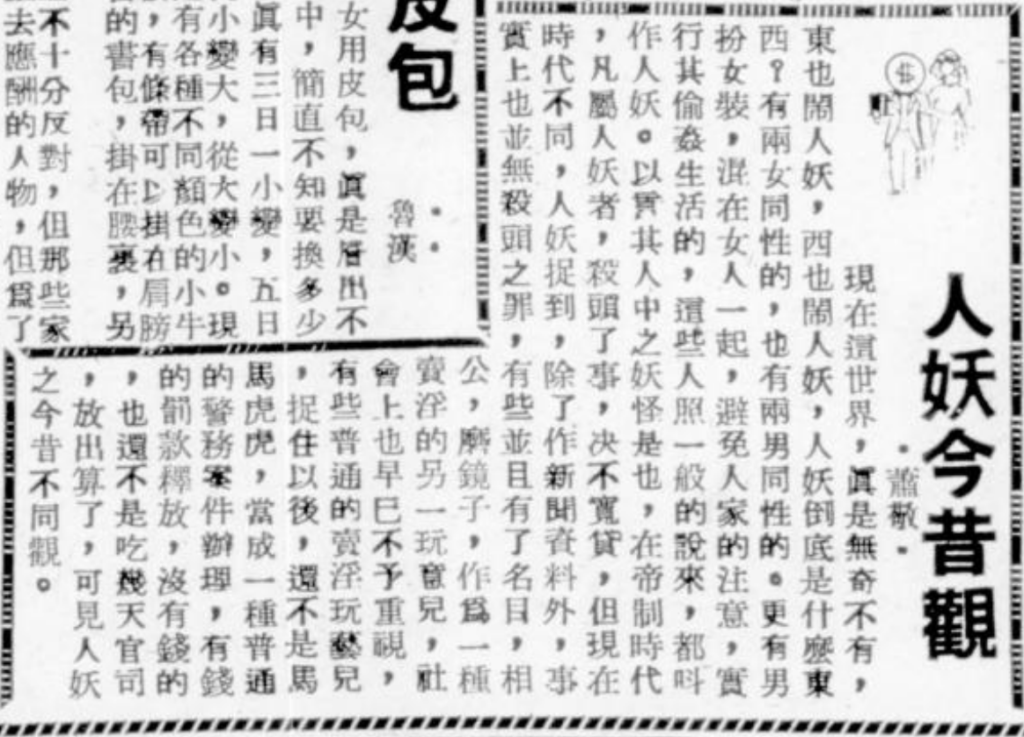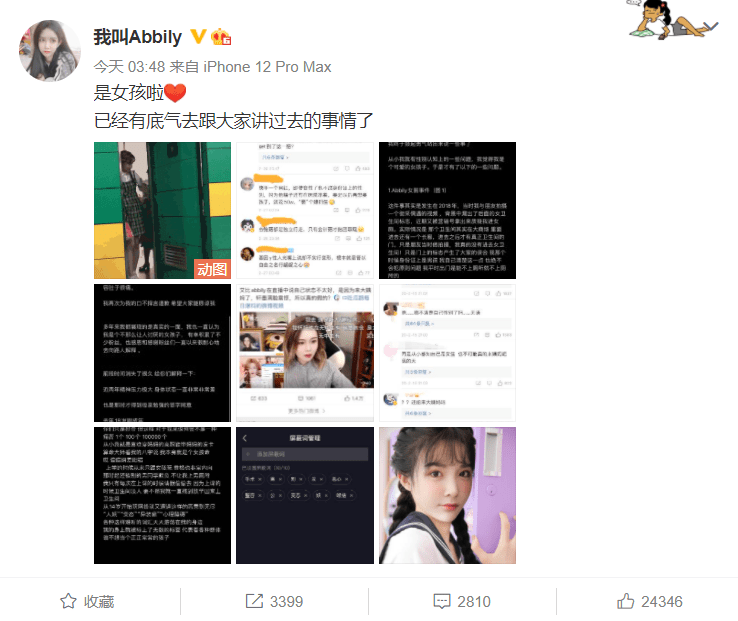As awareness of gender identity has grown globally, the Chinese-speaking world has not been left out of the conversation. In many ways, Taiwan, famous for hosting Asia’s biggest Pride festivities and being the first Asian nation to legalize same-sex marriage, has been a leading voice for LGBTQ rights in the region. When transgender folks are discussed in the country, the accepted nomenclature is kuaxingbie (跨性別), literally to “cross genders.” A trans woman is a kuaxingbienüren (跨性別女人) or simply kuanü (跨女).
But in Chinese media, particularly across the Taiwan Strait in the mainland PRC, another, more offensive moniker lives on: renyao (人妖). Literally “human monster,” it is variously translated as “ladyboy” or “tranny.” The term is considered a slur according to modern sensibilities, directed at feminine-presenting people assigned male at birth. But it has a history that goes back to some of China’s earliest dynasties.
One of the first occurrences of the word can be found in the History of the Southern Dynasties (南史), compiled by Li Yanshou (李延寿) during the early Tang dynasty (618-907). The phrase is therein used to describe a woman dressed as a man, noting with unmistakable discomfort that “this person is a human monster — a [female element] yin (陰) pretending to be a [male element] yang (陽), which cannot be.”
Fast forward to the twentieth century, and while Chinese language and society have undergone a sea change the intrinsic discomfort around renyao remains undampened. “What sort of thing is a renyao?” asks a short article in Suzhou’s Ming Pao (蘇州明報) newspaper in 1947. “Men who dress up as women to mingle amongst them,” it concludes, “evading the notice of others to commit deviant sexual acts.”

Between then and 2004, governments may have come and gone, but the tone around renyao remained consistent. That year, the weekend edition of Nanjing Daily (南京日报), the official CCP newspaper in the city, ran an article on a victim of human trafficking who had been coerced into gender reassignment surgery and sex work, labeling her “China’s first man-made renyao.” In another story, they related the ordeal of a university graduate from Hunan who was led by false promises of employment in Thailand to similarly undergo forced surgery. In both cases, renyao are the objects of not only derision and suspicion but also pity — monsters born of a monstrous process, not complex individuals with their own agency and motivations.
“Some Disease”
In 2021, beauty and dance influencer Abbily (艾比) revealed to her more than 2 million Weibo followers that she had been assigned male at birth and had successfully undergone gender-affirming surgery. “I have become a real girl now,” the online celebrity wrote. I hope everyone can be inclusive towards me.” Many of the comments under Abbily’s post were positive, but the negative responses resorted to the same prejudices from centuries earlier. “I’m afraid it’s some disease,” one wrote, “I really hate transgenders more and more.” Another opined that “genetically Y [male] people only talk about transformation but do not practice it — they are just using the name of freedom to do filthy things.”

Today, renyao is still widely used in Chinese media — and it hasn’t lost its sting. One of the latest examples can be found in a blog post to the web portal Sohu (搜狐网). It follows the story of a wealthy Chinese businessman named Bao Xi (鲍玺) and Nisha (妮莎), a trans woman from Thailand who won the transgender beauty pageant “Miss Tiffany’s Universe.” The post recounts the trajectory of their relationship from their first meeting to their marriage, highlighting the couple’s challenges and struggles. While it tries to tell a love story, however, the post still has judgemental undertones. Nisha is ultimately denied her womanhood, described as “looking like a woman but actually being a man.” The businessman Bao Xi is depicted as her savior, plucking her from the undignified existence normally the lot of renyao.
Stories like this highlight the persistent prejudices that transgender people face in China and the Sinpophone world, and that continue to be aired with impunity across many Chinese-language media.

Dalia Parete
The CMP Dictionary
C
D
F
G
M
N
P
S
- Scaling the Wall
- Science
- Second-Generation Reds
- Security
- Seeking Progress in Stability
- Seeking Truth From Facts
- Self-Revolution
- Seven Bottom Lines
- Six Adheres
- Smart Governance
- Sneaky Visit
- So-Called
- Socialite
- Soft Resistance
- Soul and Root
- Soundless Saturation / Quietly Nourishing
- Sovereignty
- Speaking Politics
- Streamlining Services
- Strong Cyber Power